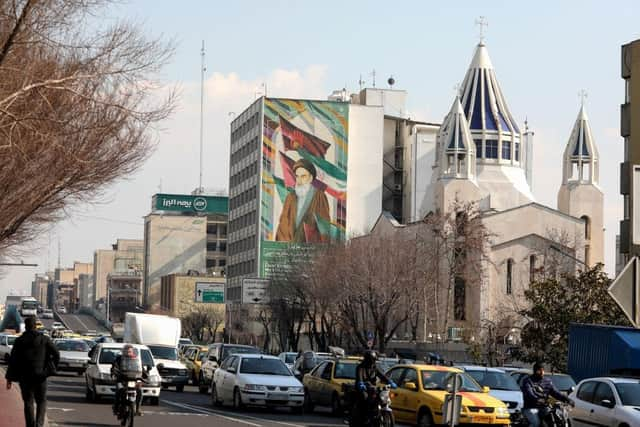Did Iranian drones kill three members of the US military? Will the US retaliate?
While the Israel-Gaza conflict has not officially expanded beyond the borders of the two sides involved, its impact on the wider region has been clear.
From the early days of the war, individual militant groups independent to Hamas, have indicated their disapproval of Israel’s retaliatory attacks on Gaza, after Hamas militants killed more than 1,000 Israelis in an attack on 7 October.
Advertisement
Hide AdAdvertisement
Hide AdHezbollah, a Lebanese Shia Islamist political party and militant group, has repeatedly fired missiles into Israel, increasing attacks in response to specific events in the war, such as this month’s killing of Sheikh Saleh al-Arouri, a Hamas leader in Beirut.


Meanwhile, the Yemen-based Houthis have launched strikes on a narrow strip of sea between Yemen and east Africa, which is a key international trade route, in a bid to end Israel’s air and ground offensive against Hamas. The Shia militant group is allied to Tehran, as are Hamas and Hezbollah, and seeks to reduce western influence in the Middle East.
Now, however, a drone attack on a US military base in Jordan, in which three US soldiers were killed and 40 more people injured, has moved the situation into an entirely different phase.
The US has blamed Iranian-backed groups for the deaths of Sergeant William Jerome Rivers, 46, Specialist Kennedy Ladon Sanders, 24, and Specialist Breonna Alexsondria Moffett, 23, with the Pentagon saying the attack carried the "footprints" of Iran-backed Iraqi militia Kataib Hezbollah.
US authorities said the drone appeared to be Iranian, but has insisted it does not want a war with Iran.
"We don't seek war, but we will take action, and respond to attacks on our forces," said Pentagon spokesperson Sabrina Singh.
There is no doubt the US will want to avoid an escalation of the situation.
If it did retaliate, however, the consequences could be huge. While Iran technically is not a nuclear power, it is believed it has the capability to build a nuclear weapon in a year – and questions have been ongoing over the past few years about whether it is secretly preparing to do so.
Advertisement
Hide AdAdvertisement
Hide AdIt is, however, internationally prohibited from doing so. The Iran nuclear deal saw an agreement reached in 2015 between Iran, the UK, China, France, Germany, Russia, and the US to limit the Iranian nuclear programme in exchange for sanctions relief.
Iran maintains that its nuclear programme is peaceful and that it has no plans to develop nuclear weapons, however the UK government has said that Iran has continued to violate the terms of the agreement over the past five years. It has lifted the cap on its stockpile of uranium, which is now 18 times the level permitted; increased its enrichment activities to 60 per cent, significantly beyond the 3.67 per cent permitted under the deal; expanded its enrichment capabilities and resumed activity at nuclear facilities that were previously prohibited.
The International Atomic Energy Agency has been prevented from satisfactorily monitoring Iran’s nuclear activities since February 2021.
Whether or not Iran has nuclear capability, any escalation of tensions between it and the US would be hugely unsettling for the Middle East – and further afield as Iran appears to be actively searching for ways to involve itself in key conflicts.
Comments
Want to join the conversation? Please or to comment on this article.
